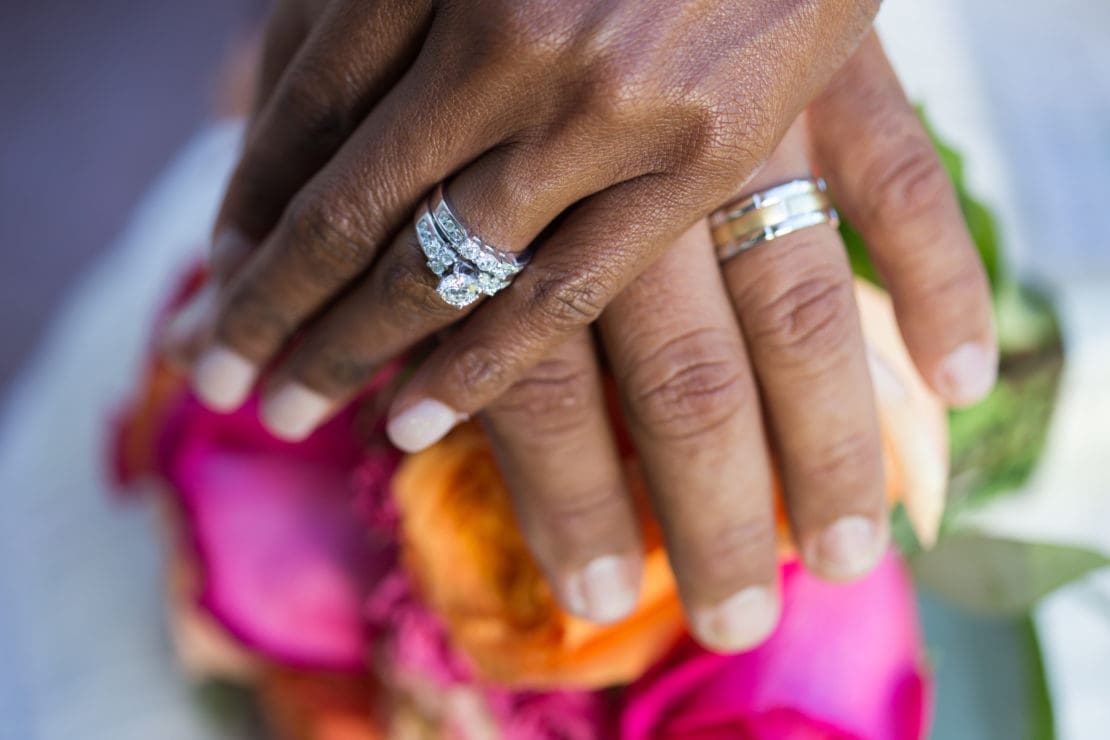The Institution of Marriage – A First Look
This is the fourth of a series of articles outlining Pope St. John Paul II’s thought on human embodiment and sexuality. The preceding article may be found here.
‘The very “core” of choosing a person must be personal.’ Spousal love is realized in the mutual choice of lovers, whereby two unique and unrepeatable human individuals, a man and woman, come to belong to one another in a permanent and stable bond. The choice of the beloved is a motivated choice: both a being moved by the good of the beloved, and a choosing of the good of the beloved. It is at once a falling in love, and a choosing of love, a happening and a willing, and both together. Only in this way do we take adequate account for the human experience that love is a being moved by the good of the beloved, and, at one and the same time, a free and perpetual choice of the beloved, a choice rooted in the interior freedom of the lover. As such, spousal love is a definitive ‘yes’ to the being of the beloved, and a declaration of the goodness of the person. Therefore, spousal love is first a love of celebration, a celebration of the goodness of the human person, the goodness of their creation, and, thereby also, a celebration of the goodness of the Creator.
Yet, for there to be such rejoicing love, there must first be truth. Spousal love is inconceivable without the spouses having a true and fully mature knowledge of one another. True knowledge capacitates the individual for a free and full choice of the other. Indeed, the person can make the volitional commitment required by spousal love only if he grasps the person in the truth of their being—nothing else can possible engage the will to the degree required of in spousal love—and so, the surrender of self-gift is not possible without this foundation in truth. Simply, the true beauty of the other person perceived in true knowledge awakens the lover and makes possible the commitment of spousal love by giving the lover courage to make the choice of the married state of life, and thereby commit his freedom to the beloved and their potential children. This truth expressly includes the truth of their sexually differentiated and complementary bodies, the truth of their goodness for one another, as also their goodness for their potential children. Only such truth has the power to engage the will in such a radical act of spousal self-gift, since only such truth can properly motivate the act of will required to make the ‘leap of faith’ required for spousal love.
Significantly, one becomes aware of the truth of his personal love to the degree that he feels responsibility for the beloved and potential child. Responsibility is as if the metric of true spousal love, furnishing the lovers with an objective measure of the maturity of their love. The lovers have a ‘responsibility for love,’ which is reducible to ‘a responsibility for the person.’ This responsibility naturally arises out of their mutual surrender to one another in the spousal form of love which opens itself to the possibility of new life. Therefore, ‘this responsibility is enormous.’ In mature love, one feels the ‘weight’ of the dignity of the beloved and child held in the goodness of the love. And this is the ‘burden’ of love—a burden that the human person is rightfully humble before, because the state of life which comes along with the spousal form of love is greater than the human person and is not of his making—and nor is its naturally procreative potential.
Through their mutual choice of one other, the spouses simultaneously choose the married state of life. Wojtyła says, ‘The choice possesses the same specific weight as that to which it leads.’ Their spousal love seeks the enduring security and permanence of the married state as it is realisable through the exchange of vows. The married state corresponds to the spousal form of their love since their love seeks all of the beloved for all of life and seeks to be all in service of the beloved for all of life. Their love is romantic but also realistic and needs to be adequately concretised in the challenging and testing vocation of married life. And so, to choose one’s beloved is to choose marriage at the same time. Spousal choice is simultaneously the choice of vocation, and the choice of vocation is found included in the choice of the beloved. This is why a vocational choice cannot really be made in the abstract but must be made in the concrete circumstances of everyday life. In the mutual choice of on another, the spouses accept responsibility for one another, and for the nature, meaning, and proper finality of their spousal form of love. This means that through their personal choice the lovers enter into a greater reality, a reality that precedes them and which they did not invent. Each individually and both together now enter into divine plan for human love, whereby the divine intent for their individual lives is now inextricably interwoven.
The divine plan for human love is realized in the institution of marriage: the union of one man and one woman, founded on self-giving love, and entered upon through a vow before one another, one’s family, the community, and God the Creator. It is a union essentially determined by monogamy and indissolubility and ordered by its nature to the procreation and education of children, the mutual and complementary aid of the spouses, and the healing remedy of the disorder of concupiscence. Marriage is the realization of human sexual love according to the divine intent and will, not only as accounting for it and illuminating it, but also, and importantly, as justifying it—justifying it both personally and socially, as also with respect to the Creator. Why does sexual love need such justification, personally and socially? and especially such divine justification? Spousal love needs justification not because it is bad and must be fundamentally and radically vindicated as good, but because it is the kind of good that needs the proper security and permanence of the institution of marriage for it to become and remain something truly personal. In brief, Wojtyła gives two interrelated reasons for the necessity of this marital justification: 1) spousal love, according to its own nature, needs to be declared, both personally and socially; and 2) the personal self-giving of man and woman needs divine approval and blessing.
1) The institution of marriage, precisely as the public proclamation of a private love, provides an objective structure securing both spouses in a social institution perfectly corresponding to their subjective acts and experiences of love. The essential properties of marriage, monogamy and indissolubility, perfectly accord with the nature of personal love, since due regard for the nature and dignity of the individual person, and the proper care of any potential children, obviously precludes both polygamy and dissolubility. The surpassing good of the person of the beloved and child can be sufficiently affirmed only through the security and protection of the marital bond. The taking of a public vow is then an eloquent witness to the personal freedom of the lovers, whereby their private love stakes its claim in the public sphere and secures itself as the primary social unit. Spousal love needs this further social justification of a structured social unit so as to secure the individual members of society who are involved in this love, the spouses themselves and the future members of society that come to life from within this sexual relationship. Marriage is intimately personal, yet it is also profoundly social. Personal love, by its nature, requires this public proclamation—it needs to be, so to speak, ‘shouted from the roof tops.’
2) The institute of marriage justifies the self-giving of man and woman with respect to God the Creator. The need for this justification follows immediately upon the creaturely being of the human person. As a creature, the human person owes his entire being—both ‘that he is’ and ‘what he is,’ both his being and essence, whole and complete—to the Creator. The Creator has an absolute ‘right of ownership with respect to all creatures,’ a dominium altum, which must be respected in all kinds of self-giving love. The human person has not determined and defined his personal form of being with its essentially sexual character and has not determined the form of self-giving sexual love that follows upon this personal structure and sexual differentiation. Rather, these realities have all been determined and defined by the Creator upon the creation of the human being as freely personal and sexually differentiated. Moreover, something extraordinary is possible in sexual union: a divine creative act, an act that brings a new person into existence. In sexual union the couple enter not only the personal order of love, but also the natural order of creation itself, and potentially participate as co-creators with the Creator. This power requires security precisely because it requires responsibility for all persons involved, principally that of caring mother and vulnerable child. Consequently, the spousal form of sexual love needs to be justified in the eyes of God and must meet with His approval. The institution of marriage is the divinely sanctioned approval of the self-gift of man and woman. The spouses then not only reciprocally give of themselves to one another but are also given to one another by God and joined by Him in an indissoluble bond secure enough to bear the genesis of new life.
In our next article, we will begin exploring the second work of St. John Paul, Man and Woman He Created Them, now popularly called the Theology of the Body.
__________________
Notes: See Karol Wojtyła, Love and Responsibility, trans. by G. Ignatik (Boston: Pauline, 2013), pp. 111-7, 117-21, 195-209, 209-30, esp. 111-7, 112-21, 200-9.


